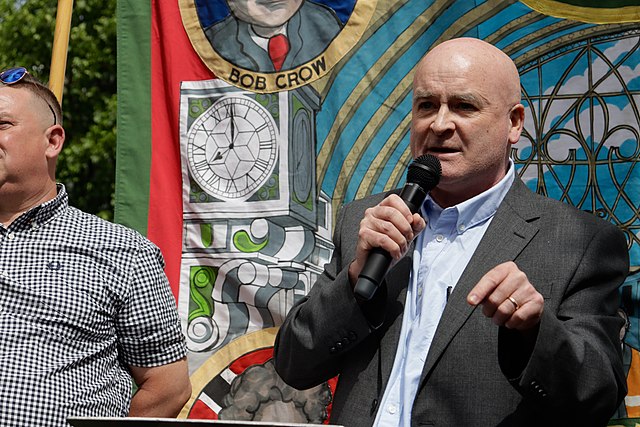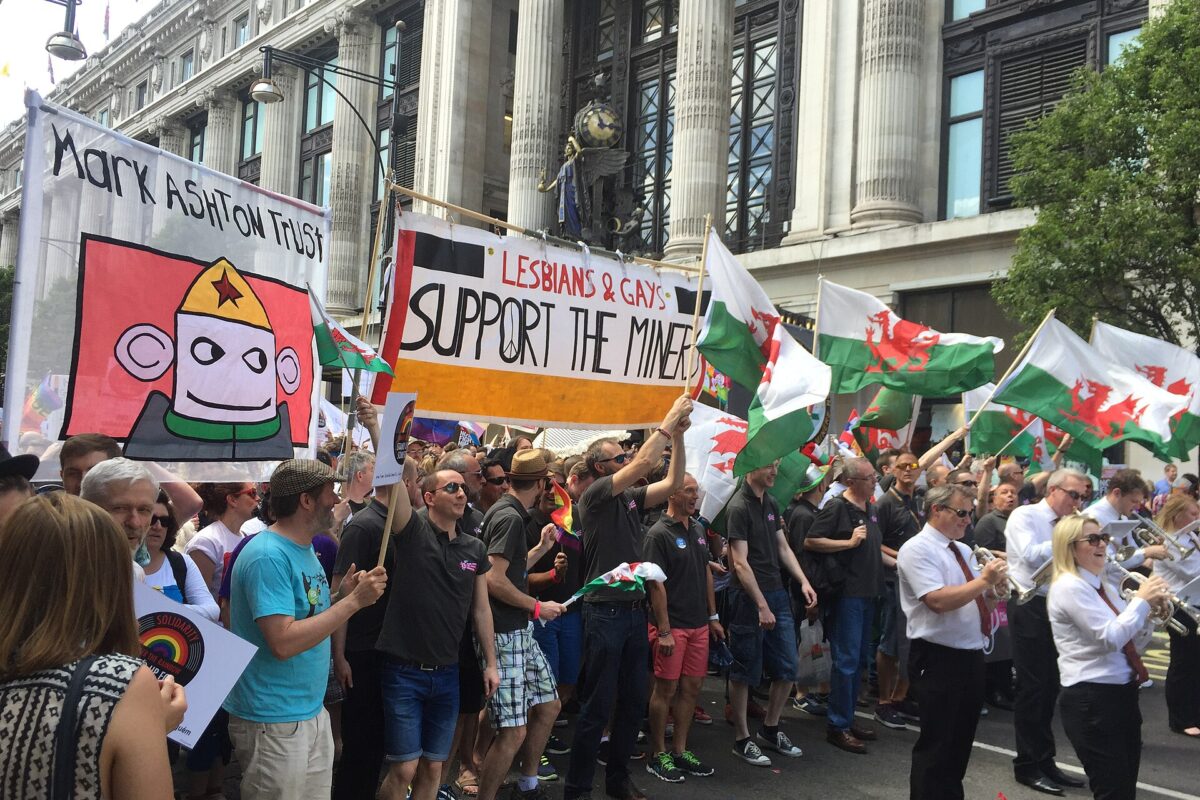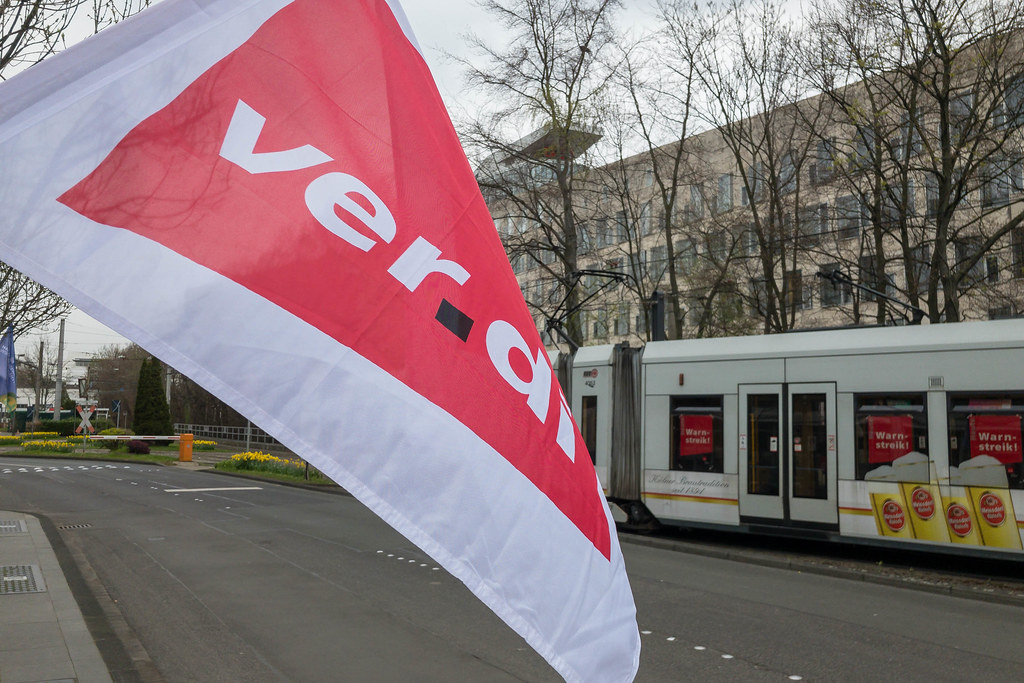To understand the limits to the action, we need to consider the nature of the unions from a Marxist perspective. Unions are not homogenous organisations. In any sufficiently stable capitalist society, they tend to develop a layer of officials outside of the workplace. These form the basis for a union bureaucracy whose social function is to negotiate the terms of exploitation of workers.
As Rosa Luxemburg pointed out over a century ago: “The specialisation of professional activity as trade union leaders, as well as the naturally restricted horizon which is bound up with disconnected economic struggles in a peaceful period, leads only too easily to bureaucratism and a certain narrowness of outlook.” The bureaucracy’s is not directly subject to the pressure of either capital or rank-and-file workers. Its key social function is to negotiate, to strike deals, indeed its power reflects its ability to do so. This is reinforced by the material conditions of the bureaucracy. If workers are sacked or face a pay cut, the bureaucrat does not lose their job or pay.
To the extent that workers move into struggle, they tend to experience the bureaucracy as a conservative force. That is not say that it is purely conservative. To exist at all, the bureaucracy must give some expression to discontent among union members, and it must protect the capacity of the union bureaucracy to negotiate with employers. But the bureaucracy generally seeks to keep any confrontation emerging from this within tight limits. Actual class struggle, driven from below, can become an unwanted interruption to negotiation, and a potential threat to union funds.
The hold of the bureaucracy is reinforced by the increasingly harsh legal framework for industrial action in many countries. It is also reinforced by defeats that reduce the self-confidence of rank-and-file workers, such as those experienced by workers in Britain from the late 1970s onwards. The big victories for the British working class, in the period around the First World War and in 1968- 1974, largely took the form of unofficial action driven by networks of rank-and-file union representatives (generally known as “shop stewards”) based in the workplace.
Of course, the situation is rarely as simple as a thin crust of conservative officials and a seething mass of radicalised rank-and-file workers. There are more conservative or passive workers among the union’s membership. That is why electronic surveys of members are today a preferred tool of union bureaucracies: they individualise members, giving equal weight to those scabbing on industrial action as to those organising and driving it. Conversely, Marxists prefer votes on picket lines or at union mass meetings, occasions that involve the collective mobilisation of members.
The bureaucracy will often seek to win active support for their approach among the union rank and file. For left-wing sections of the bureaucracy, Jane McAlevey’s work on trade union organising is particularly attractive in doing so. In the UCU, arguments drawn from her work have been widely used to undermine more radical strategies. For instance, Grady recently promoted an interview in which McAlevey claims that, before you can organise a strike, you must already have 90 percent of workers in support through a prior process of organisation. If this argument, for so-called “supermajority strikes” is taken literally, it is a very poor one. There have been plenty of successful strikes in Britain with far less support than this. Few ballots even approach a 90 percent turnout, let alone winning support for strikes from 90 percent of those eligible to vote, particularly in national disputes.
In a similar vein, the UCU’s general secretary at one stage argued that, rather than taking strike action, we should engage in a process of organisation, so that, at some point in the future, we could have sufficient union density to mobilise effectively. However, it is hard to see why people would be won to the union on the back of a devastating defeat on pay. That is not, historically, how unions have grown or deepened their organisational roots: they expand through successful struggle, rather than “organising” in the abstract. Of course, such action needs to have some chance of success, but in the kind of approach advocated by McAlevey the bar is set far too high, and it neglects the potential for groups of workers stopping short of a so-called “supermajority” can fight and win, inspiring others to start to organise.
It has been pointed out that McAlevey’s work, which contains many sensible points about organising that would be uncontentious for Marxists, is misused by the union bureaucracy. If so, she surely has some responsibility to challenge such misrepresentation from those to whom she offers her services as a consultant. Moreover, it is a theoretical limitation in her own account that licenses the use to which the work is put. Specifically, while she is rightly scathing about the drive towards partnership between unions and employers, and critical of “oligarchic” and antidemocratic tendencies in the unions, the problem of the union bureaucracy in general plays no role in her work. This allows an approach whereby the problem of bad bureaucracy is solved by better bureaucracy.
This matters because, while there are indeed important tensions within the union bureaucracy, the fault-line dividing the bureaucracy as a whole from the rank and file is of more fundamental importance. This point is harder to see at moments in which workers are relatively passive, but it becomes clearer as workers move into struggle.
So, it does matter that RMT leader Lynch publicly lambasts the government and employers, as this can increase the confidence among workers to fight. Yet this rhetorical radicalism has not yet translated into a breakthrough in the rail industry. Grady was herself elected as part of a reaction against her more right-wing predecessor in the UCU, Sally Hunt, but has reverted to markedly similar practices as union leader. Conversely, unions were able to win major victories in the early 1970s under right-wing union leaders but could suffer terrible defeats in the late 1970s and in the early 1980s under more left-wing leaders. For instance, one of the greatest victories for coal miners in Britain took place in the 1972 strike, under Joe Gormley, later Baron Gormley, who was, at the time holding secret meetings with the Conservative prime minister, and who passed information about radicals in his own union to the police. Coal miners suffered their greatest defeat in the 1984-85 strike under the left-wing firebrand Arthur Scargill.
McAlevey often uses the example of the split between the CIO and the much more conservative AFL unions in the US in the 1930s. Again, the different between them was significant. However, the split in the bureaucracy that allowed the formation of the CIO was a response to a series of militant class confrontations in 1934, driven by rank-and-file workers, often with the help of anti-Stalinist socialist militants. The CIO leaders did organise in a more militant manner than their counterparts in the AFL and did use strikes to build their unions. However, by the late 1930s, CIO leader John L Lewis, would seek to rein in the wave of action, telling bosses: “a CIO contract is adequate protection for any employer against sit-ins, lie-downs or any other kind of strike”[See John Newsinger, Fighting Back: The American Working Class in the 1930s (Bookmarks).]
This criticism of the role of the bureaucracy as a whole should not be confused with a passive, sectarian approach to unions or even their leaders. Marxists often seek to involve union leaders in joint activity and campaigns, to encourage them to mobilise their members to fight fascism or impose imperialist wars. However, it is profound mistake to believe that revolutionaries who are drawn into the union bureaucracy, or sell their services to it, are immune from the pressures inherent in these roles. As Marx puts it: “It is not consciousness of [people] that determines their being, but, on the contrary, their social being that determines their consciousness.” Marxists require an organisational alternative to reliance on the vacillating union bureaucracy.
The rank-and-file
That alternative must start from the potential of the union rank and file. The self-confidence of the rank and file stands in inverse relation to the power of the bureaucracy. In some earlier periods this was far higher than it is in most contexts today. As Tony Cliff wrote:
“Between the two wars and after the Second World War, the major unions were headed by right-wing leaders… However, the fact that they collaborated with employers and the state did not bring them into actual conflict with the rank and file in the majority of cases… Usually, management retreated under the duress of a short-lived strike, that is, before the trade union bureaucracy managed to intervene and discipline the workers… In many cases, a central element in the tactics of the militant was to win the strike before trade union headquarters heard about it”.
Sometimes this can take organised form. Historically, rank-and-file organisations emerged at high points in workers’ struggle, seeking to hold the bureaucracy to account and to act independently when necessary. Their approach was summed up well in the first leaflet issued in 1915 in Glasgow by one such organisation, the Clyde Workers’ Committee: “We will support the officials just so long as they rightly represent the workers, but we will act independently immediately they misrepresent them… [W]e claim to represent the true feeling of the workers. We can act immediately according to the merits of the case and the desire of the rank and file.”
Where such organisation exists, a rank-and-file strategy becomes possible, in which Marxists seek to weave these organisations into a coherent rank-and-file movement. Marxists are in a prime position to contribute to these efforts because we reject the logic of capitalist society and aspire to lead revolutionary change driven by workers. As such we can offer a counterpressure to the tendency of rank-and-file organisation to succumb to reformist pressures. In the past this has tended to be expressed through sectionalism—ie promoting the interests of one group of workers against others—or through the organisation subordinating itself to left sections of the bureaucracy.
In many countries today we remain a long way from the creation of a rank-and-file movement. Rank and file workers in Britain typically lack the confidence to act independently of the bureaucracy. There have been some instances of unofficial action—for instance a wave of strikes on oil and gas rigs in the North Sea last year and walkouts at Amazon depots. At the time being, though, most action consists, and will continue to consist, of large-scale official strikes under the leadership of the bureaucracy.
Nonetheless, as strike action develops, the tension between rank-and-file workers and the bureaucracy tends to grow—as is happening at present. As noted above, in the UCU there has been some counter-pressure to the attempts to shut down and limit the action, sometimes successful. Marxists have played an important role in galvanising this resistance. Although UCU is hardly the most significant union, in terms of its size or social weight, it is seeing some of the most intense and persistent debate. In less developed form, though, the discontent is expressed elsewhere. In the RCN, the main nursing union, an attempt to shut down their struggle was overcome by a huge vote—driven by networks of activists within the union who rejected the deal. A similar process has taken place in the postal service, where the leadership of the CWU presented a dreadful deal to members, claiming it as a success—before cancelling the ballot amid considerable unease within the rank and file.
While we cannot skip stages of development and leap to a rank-and-file movement, we can, in such instances, aspire to use the officially sanctioned action to build embryonic networks of rank-and-file militants, to politicise them, and to coordinate these efforts between unions.
The role of Marxists
Creating these embryonic networks requires that we do two things.
First, winning rank and file workers to our position means not simply that we build struggles when they are rising. We must also expose the limitations of the union leaders and the union bureaucracy, criticising them when they try to shut down struggles or push through poor deals. When they sell workers out, we should say so. We must explain to workers why struggles fail, why one-day strikes are not sufficient, and so on. Otherwise, the only conclusion workers can draw is cynicism about their fellow union members. Marxists do not always win the argument. Often, if there is no sense that a real fight is possible, union members will accept a poor deal. But it remains right to argue that more could be achieved through collective struggle. Even if we begin as a minority on this point, workers can learn from their experience—as they are beginning to do in Britain.
Second, Marxists must connect these efforts to build an embryonic rank and file with our wider politics—involving struggle against every aspect of capitalism and the oppression it brings about. This is clear from the example of France, where the colossal strike movement has not removed the threat posed by the far right, exemplified by Marine Le Pen and her Rassemblement National. Similarly in Britain, the uptick in strike action comes alongside renewed efforts to scapegoat refugees crossing the English Channel in small boats. Taking up such political arguments is not a distraction from the economic struggle; it is a crucial element in defending the overall interests of workers.
This is the second part of a speech Joseph should have given at the Marxismuss conference in Berlin before he was unfortunately taken ill. Reproduced with permission. You can read part 1 here.




